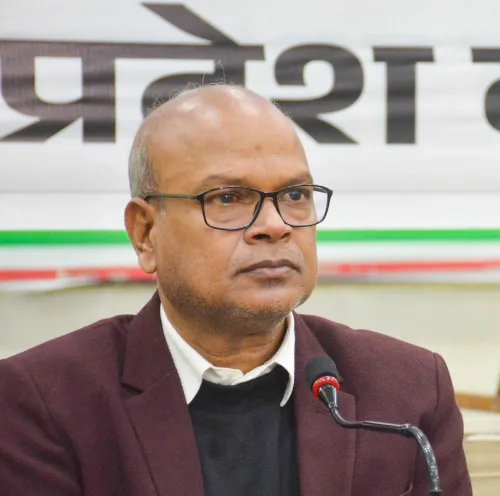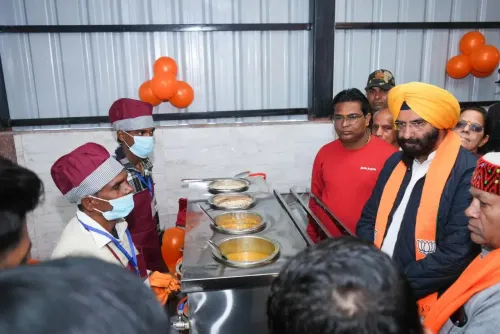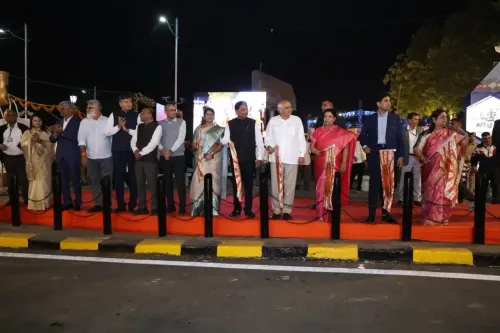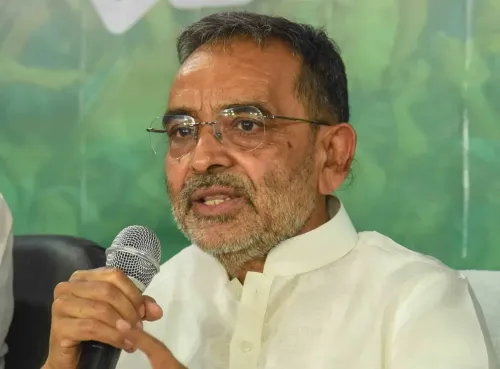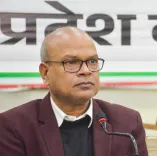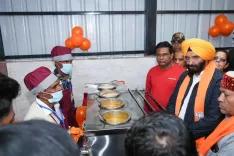What is the Journey of Bhupendra Patel from Councillor to Chief Minister?
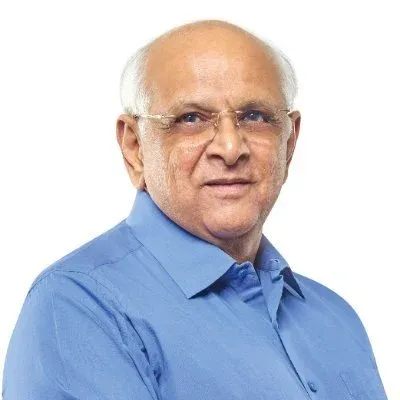
Synopsis
Key Takeaways
- Patel's journey illustrates the significance of grassroots leadership.
- He has a strong focus on economic development and infrastructure.
- Patel's leadership style is low-profile and community-oriented.
- His re-election showcases public confidence in his governance.
- Patel’s spiritual beliefs play a crucial role in his personal life.
Ahmedabad, July 15 (NationPress) As Bhupendra Rajnikant Patel celebrates his 63rd birthday on Tuesday, the political landscapes of Gujarat and Delhi resonate with accolades for a leader who has subtly yet consistently established his presence in Indian politics.
His journey from a municipal councillor to the Chief Minister of one of India's most politically crucial states exemplifies his grassroots leadership and administrative prowess.
Today, Prime Minister Narendra Modi extended his birthday wishes on social media, stating, "Birthday wishes to Gujarat CM Shri Bhupendrabhai Patel. He has always shown a commitment to serving the people and advancing Gujarat. Wishing him a long and healthy life!"
Born on July 15, 1962, in Ahmedabad, Patel hails from a Patidar family, a community integral to Gujarat's political and social landscape. With a diploma in civil engineering from the Government Polytechnic, Ahmedabad, he began his career emphasizing urban planning, construction, and community service. Before entering state politics, he was recognized in civic circles for his contributions to infrastructure and housing, particularly during his tenure as the chairman of the Ahmedabad Urban Development Authority (AUDA).
His extensive experience in civic administration positioned him as a key player in Gujarat's urban development narrative.
Patel's political ascent began at the municipal level as a corporator in the Ahmedabad Municipal Corporation (AMC), where his calm demeanor and effective work earned him respect across the board. He later became the chairman of AMC's standing committee, credited with enhancing civic governance and launching people-focused development initiatives.
His influence extended to educational and religious institutions, solidifying his reputation as a values-driven public servant.
In 2017, Patel secured a seat in the Gujarat Legislative Assembly from the Ghatlodia constituency, previously held by former Chief Minister Anandiben Patel. His selection was viewed as an acknowledgment of his relationship with Anandiben and his commendable track record. Winning by a significant margin highlighted his robust local backing and the party's trust in him. Despite being a first-time MLA, he wasn't perceived as inexperienced.
His tenure in local governance and consistent involvement in party activities had fostered a solid reputation as a diligent worker and problem-solver.
The pivotal moment in his career occurred in September 2021 when the Bharatiya Janata Party unexpectedly announced his appointment as the Chief Minister of Gujarat, succeeding Vijay Rupani. This decision surprised political analysts but was a strategic move by the party's leadership, signaling that the BJP valued effective governance over flamboyant politics.
Patel's ascension also indicated the party's dedication to the Patidar community, while relying on a leader known for his integrity and capability to execute government initiatives efficiently.
During a public event, Prime Minister Modi remarked, "Bhupendrabhai is grounded, accessible, and dedicated to development. He grasps Gujarat's strengths and knows how to leverage them without making a fuss. He embodies continuity with a fresh perspective."
This rare endorsement from PM Modi underscores his confidence in Patel's governance and his ability to advance Gujarat's governance model.
Since taking office, Patel has prioritized economic development, infrastructure growth, and the digitization of government services. Under his leadership, Gujarat successfully hosted the Vibrant Gujarat Global Summit 2024, attracting foreign investment and reaffirming the state's reputation as a business-friendly destination. His governance style is notably understated; he avoids unnecessary media engagement, delegates effectively, and dedicates significant time to overseeing implementation at the grassroots level.
Patel's personal life reflects his political philosophy. Residing with his wife Hetal and son Anuj, he maintains a strong spiritual connection. A follower of the Akram Vignan movement initiated by Dada Bhagwan, Patel begins and ends his day with prayer and reflection. Known for his calm demeanor, he listens more than he speaks, and many view him as a leader who exemplifies rather than merely articulates.
As Gujarat navigates challenges like urban congestion, water scarcity, and rural employment, Bhupendra Patel has successfully preserved political stability while gradually advancing reforms.
His re-election in the 2022 Assembly polls reaffirmed public confidence in his leadership and the BJP's developmental narrative in the state.


